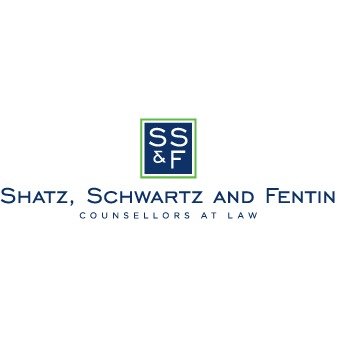Best Nursing Home Abuse Lawyers in Massachusetts
Share your needs with us, get contacted by law firms.
Free. Takes 2 min.
Or refine your search by selecting a city:
List of the best lawyers in Massachusetts, United States
About Nursing Home Abuse Law in Massachusetts, United States
Nursing home abuse is a serious issue affecting some of the most vulnerable members of our society. In Massachusetts, nursing home abuse refers to any intentional or negligent act by a caregiver or facility staff that causes harm to an elderly resident. This can include physical abuse, emotional abuse, sexual abuse, financial exploitation, and neglect. State and federal laws provide protections for nursing home residents, establishing standards of care and legal pathways for reporting and seeking justice in cases of abuse. Understanding your rights and the legal options available is critical if you suspect that a loved one is being mistreated in a long-term care facility.
Why You May Need a Lawyer
Legal representation is crucial in nursing home abuse cases for several reasons. Allegations of abuse can be complex, requiring specialized knowledge to gather evidence, understand medical records, and navigate facility policies. A lawyer experienced in this field can help families:
- Investigate suspected abuse or neglect
- File complaints with state regulatory agencies
- Initiate lawsuits for damages or seek injunctions to protect a loved one
- Assess compensation for medical expenses, pain and suffering, or wrongful death
- Ensure offenders and responsible institutions are held accountable
Often, nursing home residents and their families feel overwhelmed and unsure where to turn. Having legal support ensures your rights are protected and that your case is handled promptly and professionally.
Local Laws Overview
Massachusetts has established strong protections for nursing home residents under both state and federal law. Key legal elements include:
- Massachusetts General Laws Chapter 111, Section 72G: Requires facilities to meet minimum standards of care and outlines resident rights, including freedom from abuse and neglect.
- Mandatory Reporting: Health care providers and other professionals are required to report suspected abuse or neglect of elderly residents to the Department of Public Health (DPH) and local law enforcement.
- Resident Rights: Residents have the right to participate in their care plans, voice grievances, and file complaints without fear of retaliation.
- Investigations and Sanctions: The DPH investigates complaints, can impose sanctions on facilities, and may refer cases for criminal prosecution where necessary.
- Civil Remedies: Victims and their families can file civil lawsuits against nursing homes and abusers to recover damages, and in some cases, punitive damages may be available.
Federal laws such as the Nursing Home Reform Act also set additional standards and protections. Legal advice is essential to navigate these overlapping regulations and processes.
Frequently Asked Questions
What are the most common types of nursing home abuse?
The most common types include physical abuse, emotional or psychological abuse, sexual abuse, financial exploitation, and neglect of basic needs such as food, medication, or hygiene.
Who can I report suspected abuse to in Massachusetts?
You can report suspected abuse to the Massachusetts Department of Public Health, local law enforcement, or the local Long-Term Care Ombudsman Program.
What signs might indicate my loved one is being abused?
Warning signs can include unexplained injuries, frequent falls, sudden changes in mood or behavior, withdrawal from social activities, poor hygiene, weight loss, bedsores, or unusual financial activity.
Are nursing homes required to report allegations of abuse?
Yes. Massachusetts law mandates that nursing homes and healthcare professionals report any suspected abuse, neglect, or mistreatment of residents.
Can I file a lawsuit on behalf of my family member?
Yes. If your loved one is unable or unwilling to take legal action themselves, you may be able to file a lawsuit or complaint on their behalf, especially if you hold power of attorney or guardianship.
What compensation is available in nursing home abuse cases?
Victims and their families may recover compensation for medical expenses, pain and suffering, out-of-pocket costs, and, in severe cases, punitive damages. Wrongful death claims may also be possible.
How long do I have to file a claim in Massachusetts?
The statute of limitations for personal injury claims, including nursing home abuse, is generally three years from the date of injury or discovery. It is important to consult a lawyer as soon as possible to preserve your rights.
What if my loved one cannot communicate or has memory loss?
Residents with cognitive impairments are especially vulnerable. In such cases, family members and guardians play an essential role in monitoring care, recognizing abuse, and acting on their behalf.
Can a nursing home retaliate if I make a complaint?
No. Both state and federal law strictly prohibit retaliation against residents or their families for making complaints or reporting abuse.
Do I need an attorney to report abuse or file a lawsuit?
While you can report abuse without a lawyer, an experienced attorney can guide you through the legal process, ensure a thorough investigation, and maximize your chances of a successful outcome.
Additional Resources
- Massachusetts Department of Public Health (DPH) - Nursing Home Division
- Massachusetts Office of Elder Affairs
- Local Long-Term Care Ombudsman Program
- Massachusetts Attorney General's Office - Elder Abuse Unit
- National Center on Elder Abuse
- Legal Services agencies specializing in elder law
These organizations can provide information, resources, and assistance with reporting and addressing abuse in nursing homes across Massachusetts.
Next Steps
If you suspect nursing home abuse or need legal assistance in Massachusetts, consider the following steps:
- Document your observations, including photos, witness statements, and medical records if possible.
- Report your concerns to the appropriate authorities, such as the Department of Public Health or local law enforcement.
- Consult with a lawyer who specializes in nursing home abuse cases to determine your legal options and begin the investigative process.
- Stay engaged with your loved one’s care, maintain communication with staff and administrators, and monitor any changes in their wellbeing.
Taking prompt action can protect your loved one and help hold responsible parties accountable for neglect or abuse.
Lawzana helps you find the best lawyers and law firms in Massachusetts through a curated and pre-screened list of qualified legal professionals. Our platform offers rankings and detailed profiles of attorneys and law firms, allowing you to compare based on practice areas, including Nursing Home Abuse, experience, and client feedback.
Each profile includes a description of the firm's areas of practice, client reviews, team members and partners, year of establishment, spoken languages, office locations, contact information, social media presence, and any published articles or resources. Most firms on our platform speak English and are experienced in both local and international legal matters.
Get a quote from top-rated law firms in Massachusetts, United States — quickly, securely, and without unnecessary hassle.
Disclaimer:
The information provided on this page is for general informational purposes only and does not constitute legal advice. While we strive to ensure the accuracy and relevance of the content, legal information may change over time, and interpretations of the law can vary. You should always consult with a qualified legal professional for advice specific to your situation.
We disclaim all liability for actions taken or not taken based on the content of this page. If you believe any information is incorrect or outdated, please contact us, and we will review and update it where appropriate.
Browse nursing home abuse law firms by city in Massachusetts
Refine your search by selecting a city.










